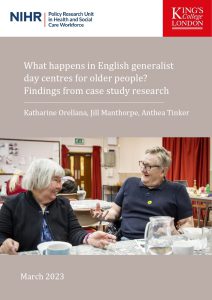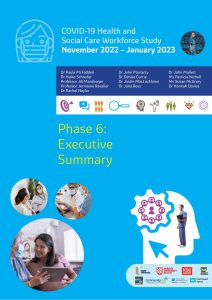 Lucy Jacobs is a Senior Social worker with London Borough of Bromley Adult Social Care currently undertaking a Pre-Doctoral Local Authority Fellowship in the NIHR Health & Social Care Workforce Research Unit, King’s College London. (1192 words)
Lucy Jacobs is a Senior Social worker with London Borough of Bromley Adult Social Care currently undertaking a Pre-Doctoral Local Authority Fellowship in the NIHR Health & Social Care Workforce Research Unit, King’s College London. (1192 words)
I was delighted to have been selected as one of the Local Authority Presenters to speak at the National Institute for Health and Care Research (NIHR) Applied Research Collaboration (ARC) North Thames (NIHR ARC North Thames) event held on the 18 May 2023 entitled ‘Mind the Gap: London Boroughs’ ideas for adult social care research’. The event was split across a morning and afternoon session. It was hosted by the Care Policy Evaluation Centre. Co-organisers, alongside the NIHR ARC North Thames, were made up of the following: the NIHR ARC South London, the NIHR ARC North West London, the CRN North West London and the NIHR School for Social Care Research.
I felt honoured and nervous (in equal measures) to have been given the opportunity to present my topic in the morning session. Dr Sarah Jasim from the Care Policy Evaluation Centre opened the event on behalf of the organising team and introduced the ‘World Café’ session format. The three local authority thought leaders (which included my humble self) would briefly introduce our local topics of interest and stay at our tables where attendees would subsequently rotate between the discussion tables every 30 minutes. I had never been a presenter in a ‘speed dating’ (or 30-minute speed date if you like) styled event prior to this, so it was quite exciting for me as an early researcher. Needless to say I thoroughly enjoyed it. Continue reading

 Carolin Hess is a PhD student in the
Carolin Hess is a PhD student in the  This blog is the first in a series of three by
This blog is the first in a series of three by 

